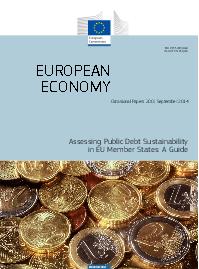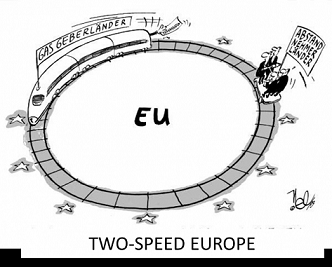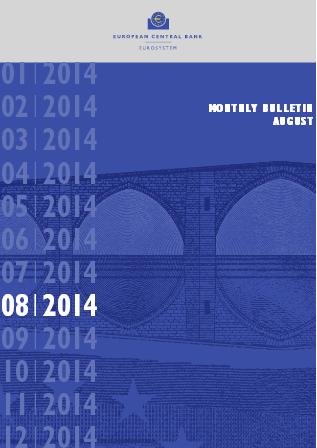Nolan, B., Salverda, W., Checchi, D., Marx, I., McKnight, A., György Tóth, I. & van de Werfhorst, G. H. (Eds.) (2014) “The GINI Project, Changing Inequalities and Societal Impacts in Rich Countries – Thirty Countries’ Experiences“, Project Funded Under the Socio-Economic Sciences & Humanities Theme, 30 August. Aims The GINI Project studies the economic and educational drivers and the social, cultural and political impacts of increasing inequality with novel …Read More
Greater attention should be paid to the consequences of a ‘Brexit’ for the EU and other states around the world, not just the UK
Möller, Α. & Oliver, Τ. (2014) “Greater attention should be paid to the consequences of a ‘Brexit’ for the EU and other states around the world, not just the UK“, LSE EUROPP Blog, 01 September. The UK’s EU membership is likely to be a key issue in the 2015 British general election campaign: a point underlined by the defection last week of the Conservative MP Douglas Carswell to UKIP. Almut …Read More
Why European Progressives Stick To Austerity
Meyer, H. (2014) “Why European Progressives Stick To Austerity“, Social Europe Journal, 01 September. Writing about the recent French government crisis in the New York Times, Paul Krugman raised some uncomfortable questions. He worried about the ongoing dominance of austerity illogic on this side of the Atlantic and what this says about public discourse and the effectiveness of progressive forces. He criticised the UK Labour Party for its unwillingness …Read More
Assessing Public Debt Sustainability in EU Member States: A Guide
Berti, Κ. & Carone, G. (2014) “Assessing Public Debt Sustainability in EU Member States: A Guide“, European Economy, Occasional Papers, 200. August 2014: Brussels. Analysing recent and prospective public debt developments and risks to debt sustainability is crucial for EA countries and the EU as a whole to be able to formulate appropriate policy responses. To this aim, the Commission services (Directorate General for Economic and Financial Affairs) conduct, …Read More
Publish or be damned or why central banks need to say more about the path of their policy rates
Barwell, R. & Chadha, J. (2014) “Publish or be damned or why central banks need to say more about the path of their policy rates“, VoxEU Organisation, 31 August. In the wake of the crisis, forward guidance has become a prominent tool of monetary policy. This column argues that central banks should go a step further, communicating to the public the internal policy debate that goes into monetary policy …Read More
Fiscal Convergence in the European Union before the Crisis
Bertarelli, S., Censolo, R. & Colombo, C. (2014) “Fiscal Convergence in the European Union before the Crisis“, Contemporary Economic Policy, Volume 32, Issue 4, pp. 784–801, October 2014. This article investigates fiscal convergence attained by EU countries in the period 1991–2008, by employing β- and σ-convergence techniques complemented by a time series analysis. Overall our results highlight a distinctive convergence pattern in the European Union. Fiscal discipline leading to …Read More
Europe According to Draghi
Pisani-Ferry, J. (2014) “Europe According to Draghi“, Project Syndicate, 31 August. Central bankers are often proud to be boring. Not Mario Draghi. Two years ago, in July 2012, Draghi, the president of the European Central Bank, took everyone by surprise by announcing that he would do “whatever it takes” to save the euro. The effect was dramatic. This August, he used the annual gathering of top central bankers in …Read More
Why is Europe Not ‘Coming Together’ in Response to the Euro Crisis?
Varoufakis, Y. (2014) “Why is Europe Not ‘Coming Together’ in Response to the Euro Crisis?”, Yanis Varoufakis Blog: thoughts for the post-2008 world, 29 August. In this article I ask a question on everyone’s lips: Almost everyone agrees that the Eurozone was a one-legged giant; a monetary union lacking a political ‘leg’ to stabilise it. If so, why has the Euro Crisis (which surely strengthened that view on the back …Read More
A missed opportunity
Sonntag, A. (2014) “A missed opportunity“, EU-Asia Institute at ESSCA School of Management, 01 September. 20 years ago, on the 1st of September 1994, two German MPs from the CDU led by Helmut Kohl published a position paper, which bore the innocuous title ‘Reflexions on European Politics’ and which became quickly named the ‘Schäuble-Lamers Paper’ after its authors. The propositions and recommendations formulated in this rather dense document of …Read More
Monthly Bulletin
European Central Bank (2014) “Monthly Bulletin“, ECB Eurosystem, August. Based on its regular economic and monetary analyses, the Governing Council decided at its meeting on 7 August 2014 to keep the key ECB interest rates unchanged. The available information remains consistent with the Governing Council’s assessment of a continued moderate and uneven recovery of the euro area economy, with low rates of inflation and subdued monetary and credit dynamics. …Read More









